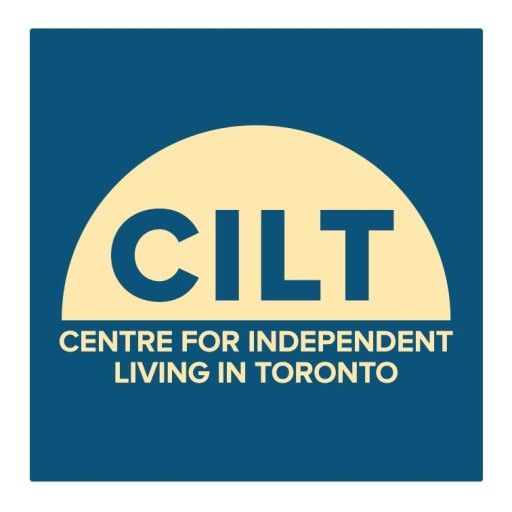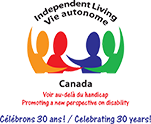The following is a survey questions letter that CILT and CNIB sent out to the top polling Toronto Mayoral By-Election Candidates on Friday, June 16th, 2023 for response by end of Monday, June 19th, 2023:
Toronto Mayoral By-Election 2023
People with disabilities represent the largest minority in Canada, at 22% of the population, and yet are often ignored in the context of government decision-making.
The Centre for Independent Living in Toronto (CILT) and CNIB are inviting all Toronto Mayoral By-Election Candidates to tell us how you intend to address the needs of disabled people in Toronto by answering the following questions.
We will share the results with our members and the broader disability community on the CILT website (www.cilt.ca ) and CNIB website (www.cnib.ca) and will also circulate the responses we receive on Twitter through @CIL_Toronto and @cnib accounts.
If you have any questions about this survey, please email us at cilt@cilt.ca and we will respond.
Candidate Responses
Chloe Brown
Questions for Mayoral Candidates on Disability Issues:
- We know everyone is facing a housing shortage, but for disabled people the issue is not just a lack of affordable housing, but also a lack of accessible housing. In 2019, Toronto City Council adopted a right to housing commitment and this includes a right to accessible housing, and yet disabled people in Toronto are experiencing an accessible housing crisis. Action on accessible housing remains largely absent from the housing platforms of leading candidates.
How would you develop more accessible and deeply affordable housing for disabled Torontonians? How quickly would your approach be implemented? - A single disabled person living on ODSP receives $1228 maximum per month on ODSP. This must cover all expenses including paying rent and buying food. As well, many working disabled people endure systemic employment barriers, are underemployed and live in deep poverty. According to the Daily Bread Foodbank’s “Who’s Hungry Report,” disabled people constitute 44% of the users of food banks in Toronto. Apart from the Fair Fare pass, disabled people are missing from the City of Toronto’s Poverty Reduction Strategy.
How do you propose addressing the ongoing and systemic poverty which many disabled people experience? - AODA Reviewer and former Lieutenant Governor David Onley said that for disabled people, Ontario is a place of “dispiriting and soul crushing barriers”. The most recent AODA reviewer, Rich Donovan, released an interim report in March 2023 stating that he “has no choice but to assess this [AODA] regulatory regime in its current form and practice to be an unequivocal failure.”
Do you think the City of Toronto will be fully accessible by 2025? If not, how will you get Toronto on track to meet its legislative obligations under the AODA? - Far too often, disabled people are left out of the City’s concept of equity deserving populations. A recent example of this is that the City’s newly established Right to Housing Advisory Committee Terms of Reference included many different equity deserving groups but did not originally require disabled
folks to be represented. It has since been amended with input from the disability community and the support of two City Councillors.
How would you ensure that the City of Toronto’s work related to ‘equity deserving populations’ always includes disabled people? - Wheel-Trans’ own internal reports show that they intend to move 50% of current Wheel-Trans users on to the traditional system through the Family of Services program, despite it not yet being fully accessible or safe for them to use. A recent TTC Riders report demonstrates that thousands of disabled
people will lose their independence as a result of this cost-saving measure.
How will you ensure that disabled Torontonians’ right to use a fully accessible transit system is supported? - In 2021, City Council voted unanimously to ban e-scooters from city sidewalks at the recommendation of both City staff and the City of Toronto’s Accessibility Advisory Committee (TAAC). In cities where e-scooters have been rolled out, people with disabilities, seniors and children have been injured as a result of inexperienced and unsafe riders, and encountered serious issues with scooters
being left haphazardly on the pavement.
How will you ensure that people with disabilities, seniors and children will be kept safe from the hazards of e-scooters and micro-utility robots on our streets?
About the Survey Organizers:
Centre for Independent Living in Toronto (CILT)
The Centre for Independent Living in Toronto (CILT) is a consumer-controlled, community-based resource organization. CILT’s aim is to develop and implement dignified social services that empower individuals rather than create dependencies. We encourage people with disabilities to take control of
their own lives by exercising their right to examine options, make choices, take risks and even make mistakes.
CILT is unique in that a majority of Board and staff positions must be held by persons with a disability, thus ensuring that the service is directed and controlled by the consumer. CILT is also a member of the GTA Disability Coalition – the only grassroots, cross-disability coalition working to improve the inclusion
of disabled people in the GTA.
www.cilt.ca
CNIB (Canadian National Institute for the Blind)
Founded in 1918, CNIB (Canadian National Institute for the Blind) is a non-profit organization driven to change what it is to be blind today. We deliver innovative programs and powerful advocacy that empower people impacted by blindness to live their dreams and tear down barriers to inclusion. Our work as a blind foundation is powered by a network of volunteers, donors, and partners from coast to coast to coast.
The CNIB’s wide-ranging programs address the needs of people of all ages as they:
● Enhance their skills, realize their goals and live with confidence
● Have fun, play, connect with others and demonstrate that people with sight loss can do anything
● Get the skills and resources to attain work ambitions, and break through barriers in the job market
● Learn the knowledge, social skills and independence to achieve their full potential in school and life
● Advocate to change perceptions about blindness, eliminate barriers and transform challenges into
opportunities
www.cnib.ca







